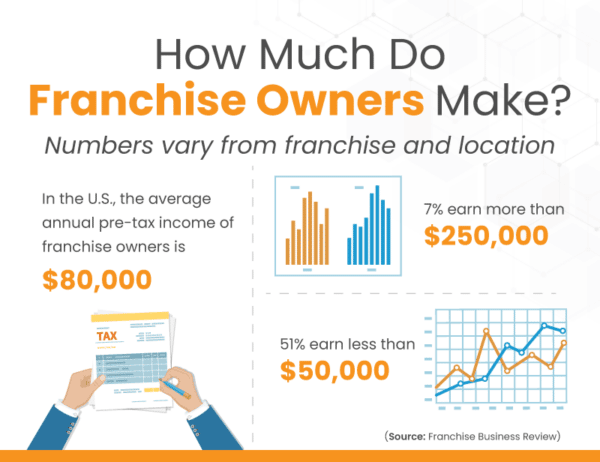How Much Do First Watch Franchise Owners Make

The allure of owning a breakfast, brunch, and lunch franchise like First Watch, known for its fresh ingredients and health-conscious menu, is undeniably strong for many aspiring entrepreneurs. But beyond the appeal of serving avocado toast and omelets, a crucial question looms: How much do First Watch franchise owners actually make?
Understanding the financial realities of franchise ownership, particularly in the competitive restaurant industry, is paramount for anyone considering investing in a First Watch location. While definitive, universally applicable income figures are elusive, examining available data and industry benchmarks can provide a realistic perspective on the potential profitability and the factors that influence it.
Understanding the Financial Landscape
Estimating the earnings of a First Watch franchise owner is not a simple calculation. It depends on a multitude of factors, ranging from location and operating costs to management efficiency and market conditions. Publicly available Franchise Disclosure Documents (FDDs) offer some insight.
These documents, required by the Federal Trade Commission (FTC), provide potential franchisees with critical information about the franchise, including financial performance representations. However, it’s essential to understand that these are averages and past performances, and don't guarantee future success.
The First Watch FDD typically includes information on average unit volumes (AUV), which represents the average gross sales of all franchised restaurants within a defined period. Keep in mind that AUV is revenue, not profit.
Revenue vs. Profit: The Key Difference
Gross revenue, or AUV, represents the total sales generated by a First Watch restaurant. Franchise owners must then deduct a wide range of expenses, including rent, utilities, food costs, labor, marketing fees, franchise royalties, and other operating expenses.
What remains after these deductions is the owner’s net profit, representing the actual income the franchisee can expect to take home. This net profit margin can vary significantly depending on how effectively the franchise is managed and external market forces.
Generally, restaurant industry profit margins can range from 3% to 15%, with higher margins achieved through efficient operations, strong cost controls, and effective marketing strategies. The actual profit for a First Watch franchise will fall somewhere within this range, influenced by the owner's ability to manage costs and maximize revenue.
Factors Influencing Franchise Owner Income
Several key factors play a crucial role in determining the financial success of a First Watch franchise. Location is paramount.
A high-traffic area with a strong demographic profile can significantly boost sales, while a less desirable location may struggle to attract customers. Lease rates, local economic conditions, and competition also contribute to the overall profitability equation.
Effective management is another critical determinant. A skilled franchise owner will be adept at controlling costs, managing staff effectively, and implementing marketing strategies to drive sales. Neglecting any of these areas can significantly impact the bottom line.
Food costs, a significant expense for any restaurant, must be carefully managed. Waste reduction, efficient inventory management, and strategic vendor relationships can all contribute to lower food costs and increased profitability.
Labor costs also represent a substantial portion of operating expenses. Efficient scheduling, employee training, and competitive wages are essential for attracting and retaining qualified staff, which ultimately impacts customer service and operational efficiency.
Human Angle: Real-World Experiences
While broad financial data is valuable, understanding the real-world experiences of First Watch franchise owners can provide a more nuanced perspective. Speaking with current or former franchisees, although potentially difficult due to confidentiality agreements, can offer valuable insights into the day-to-day realities of running a First Watch restaurant.
These conversations can reveal practical tips for maximizing profitability, overcoming common challenges, and navigating the complexities of franchise ownership. Anecdotal evidence, while not statistically representative, can offer a valuable counterpoint to purely financial analyses.
For example, a franchisee who has successfully implemented a local marketing campaign targeting specific demographic groups might share insights on how to drive sales and increase customer loyalty. Similarly, a franchisee who has struggled with high labor costs might offer advice on how to improve employee retention and reduce turnover.
The Bottom Line: A Realistic Perspective
Determining the precise income of a First Watch franchise owner is complex. Several variables influence profitability.
Potential franchisees should carefully review the First Watch FDD, conduct thorough due diligence, and seek advice from experienced franchise consultants or financial advisors. Understanding the financial implications and operational requirements is crucial before making such a significant investment.
While the potential for financial success exists, it requires hard work, dedication, and a strategic approach to managing all aspects of the business. Franchise ownership is not a passive investment; it demands active involvement and a commitment to providing excellent customer service and maintaining high operational standards.


















